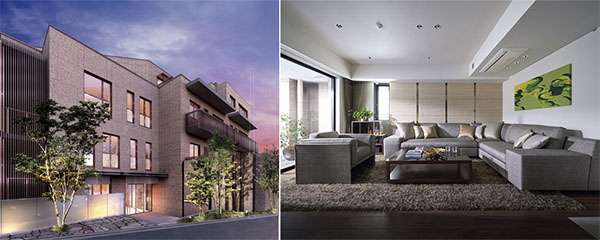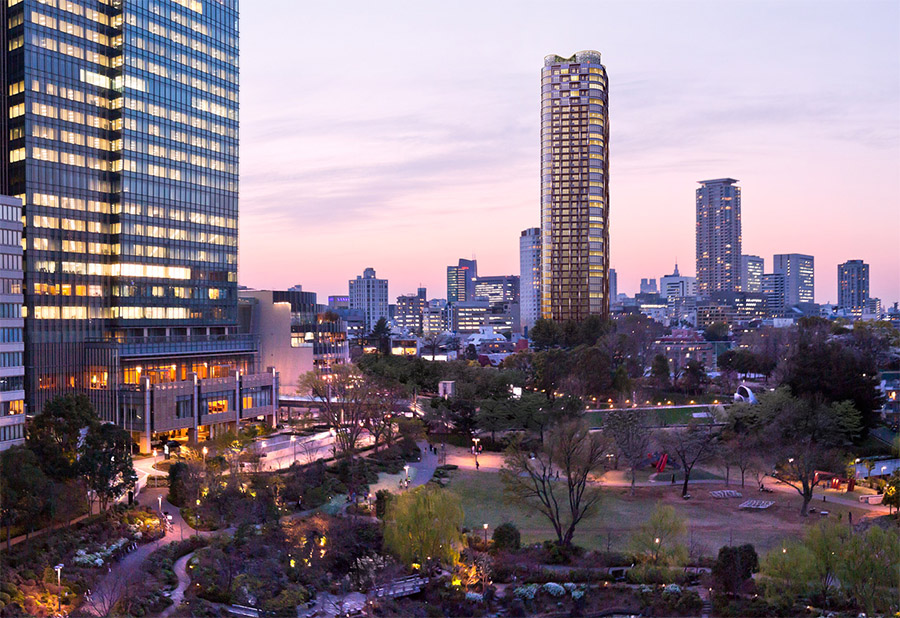New apartment supply drops for 4th month in a row

According to the Real Estate Economic Institute, 2,693 brand new apartments were released for sale in greater Tokyo in March, up 20.4% from the previous month but down 39.6% from last year. This is below the Institute’s previous estimate of 4,500 units, and is the 4th month in a row to see a drop in supply from 12 months prior. It is also the first time since 2009 that the annual supply for the month of March dropped below 3,000 units.
1,820 apartments were sold, resulting in a contract rate of 67.6%, down 5.3 points from the previous month and down 12.0 points from last year.
317 apartments in high-rise buildings (over 20-storeys) were offered for sale. The contract rate was 64.4%, down 14.6 points from last year.
The average price of a new apartment across greater Tokyo was 56,380,000 Yen, down 2.3% from the previous month but up 8.7% from last year. The average price per square meter was 802,000 Yen, down 4.0% from the previous month but up 9.0% from last year.Read more
Construction on Olympic Athlete’s Village to start this month

On March 31, the Tokyo Metropolitan Government announced the post-olympic plans for the 44 hectare Athlete’s Village in the Tokyo bay area.
For the duration of the Olympics and Paralympics, athlete accommodation will be provided in 21 buildings ranging from 14 to 18 storeys. Afterwards, these existing buildings will be converted into condominium and rental apartments by private developers. After the games, construction will begin on two 50-storey high-rise apartment buildings. The entire project is expected to be completed by 2024.Read more
58-storey residential tower and hotel planned for downtown Yokohama

Mitsui Fudosan Residential, Marubeni and Mori Building have announced plans for a 58-storey hotel and condominium for downtown Yokohama. The 199.95m tall tower will contain approximately 1,200 apartments, with a hotel occupying several of the upper floors. Construction is scheduled to start in October 2016, with completion by January 2020. This will be the largest residential project over 100 meters tall in Yokohama since 2000.Read more
Brand new condominium prices in Japan reach 42-year high

The average price of a brand new condominium across Japan reached a 42-year high in 2015. According to the Real Estate Economic Institute, the average sale price of a brand new condominium across the country was 46,180,000 Yen (412,000 USD) in 2015, up 7.2% from 2014 and the highest price seen since the Institute began recording sales data in 1973.
The average price per square meter was 654,000 Yen (540 USD/sq.ft), up 8.5% from 2014. This is the 3rd year in a row to record a year-on-year increase. Although the total sale price reached a record high, the average price per square meter is still slightly below the peak of 667,000 Yen/sqm recorded in 1991.
The average price in Tokyo’s 23 wards was 67,320,000 Yen (600,000 USD), up 12.3% from 2014. The average price per square meter was 987,000 Yen (820 USD/sq.ft), up 13.1% from 2014.
In 2015, there were 1,688 brand new condos priced over 100 million Yen offered for sale in the greater Tokyo area, an increase of 85.9% from 2014, but still below the peak of 3,079 units in 1990. The most expensive new apartment sold in East Japan was a 203 sqm (2,184 sq.ft) penthouse apartment in the Kengo Kuma-designed Park Court Akasaka Hinokicho The Tower condominium in Akasaka, Tokyo. The apartment sold for 1.5 billion Yen (13.4 million USD), which resulted in a record-setting price per square meter of around 7.4 million Yen (6,130 USD/sq.ft). West Japan also saw the most expensive new apartment sale in the past 20 years when a penthouse apartment in a luxury condominium currently under construction alongside Kamo River in Kyoto sold for 749 million Yen (6.7 million USD), or around 2,440,000 Yen/sqm (2,000 USD/sq.ft).
High-rise planned for Omotesando former public housing site
 The Aoyama Kitamachi Apaato, a city-operated public housing complex located on a prime 40,000 sqm site in the centre of Omotesando, is going to be replaced with a 20-storey high-rise apartment building.
The Aoyama Kitamachi Apaato, a city-operated public housing complex located on a prime 40,000 sqm site in the centre of Omotesando, is going to be replaced with a 20-storey high-rise apartment building.
The current site includes 25 public housing blocks containing a total of 586 apartments. They were built between 1957 and 1968 and are now in various stages of ageing and deterioration. The 4 and 5 storey buildings do not have elevators, and some of the earlier buildings did not have bathrooms (in those days the residents would have gone to local bathhouses).
Since 2006, Tokyo City has been slowly vacating the tenants in preparation of redevelopment. Almost half of the apartments are vacant, while remaining residents gradually move out.
Demolition is scheduled to start in 2017, and completion is expected in time for the 2020 Summer Olympics.Read more
Sports stadium and mall likely to replace old Tsukiji fish market

According to insiders at a major Japanese real estate company, a sports stadium and shopping mall are being considered as a replacement for the former Tsukiji fish market site in downtown Tokyo.
The famous 80-year old fish market is scheduled to move to its new location on Shin-Toyosu Island in Tokyo Bay in early November 2016, leaving a 23 hectare site prime for redevelopment. The outer market, which has retail and restaurants catering to the general public, will remain in its current location, while the wholesale market will move to a much larger site in Shin-Toyosu.Read more
New retail project for Omotesando/Harajuku intersection

The Jingumae 6 Chome District Redevelopment Committee is moving forward with plans to redevelop a prime 3,000 sqm retail site fronting both Omotesando and Meiji Dori Avenues.
The redevelopment committee was established in August 2015 and includes Tokyu Land (who acquired Coop Olympia Annex in 2013), Colombin Co. (a biscuit and cake company that have their headquarters next-door to Coop Olympic Annex), part of Tokyo Metro’s subway facilities (the Chiyoda and Fukutoshin Lines are both located nearby), and the Tokyo Metropolitan Government (owner of the Jingumae Onden Resident Hall).Read more
